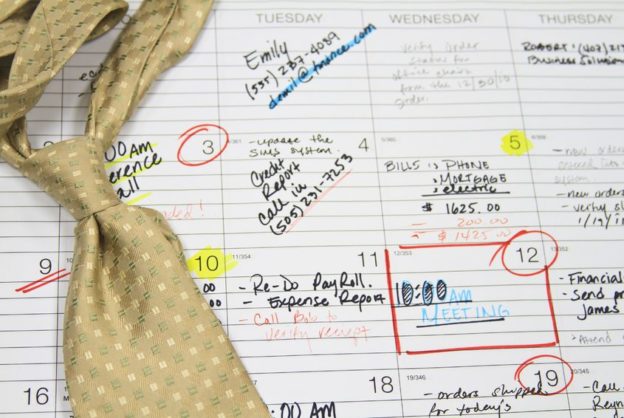Poor timekeeping
I have to confess that in my time I have indeed been guilty of some erratic timekeeping. I was very much “a one more thing before I go” type of girl and a great subscriber to the phrase “fashionably late“. But then I worked for a manager who would monetize the communally wasted time whenever any of his team was late for a meeting. It was actually quite shocking. If we had all been held financially accountable, our pay cheques would have been significantly lighter.
When I transitioned into sales I had to replace “better late than never “ with “never late is better”. Arriving late isn’t actually a recognised commercially winning strategy. As a head hunter being on time is critical particularly in a candidate driven market when first impressions count. As a coach ditto.
Running late
I have become acutely aware in recent weeks how erratic general timekeeping seems to have become and how easily the phrase “running late “, has slipped into our daily business and social vernacular, including my own. Very often people apologise, (sometimes they don’t), explaining that either they, someone, or something else was “running late“, as though they were a bus service, entirely passive and had nothing to do with it at all.
It can be a feature of some cultures where late arrivals are factored into the time allocation by the organisers. Some webinar organisers say let’s wait (for 5, or 10 minutes) for everyone to arrive. But what about the people who arrive on time?
Clearly there are always unforeseen circumstances. Only recently I scooted into an important meeting with only minutes to spare. A journey scheduled to take 10 minutes, took 45, due to traffic congestion. But, I wondered, are we all becoming more tolerant of poor time keeping? It’s as if we are communally raising our hands saying ” I know life is tough for you. It’s Ok – I don’t mind waiting here wasting my own time….. I’m a bus too ?”
Whatever happened to William Shakespeare’s “Better three hours too soon, than one minute too late?”
Consequences
A candidate was recently late for an interview. He hadn’t properly checked the company’s address the night before and arrived 15 minutes late, having been to the wrong building at the designated hour. What should have been a walk in the park (he was the preferred candidate) became an interview nightmare, as his anxiety levels rose and he fluffed even routine questions. A hiring manager similarly kept a candidate waiting so long that she eventually left and then withdrew from the process.
Julie Morgenstern, author of Time Management From the Inside Out, tells us that the first step is to make promptness a conscious priority, but also we need to gain an understanding into why we’re always late. Poor timekeeping can be very costly, both directly but also via damage to our reputations suggesting we are unreliable, untrustworthy and/or disorganised.
Reasons for poor timekeeping
The reasons she maintains tend to fall into two categories: technical or psychological.
- Technical Difficulties
Morgenstern advises establishing patterns by keeping a time log of all tasks and finding out exact how much time each task takes. Then factor in a margin for some unforeseen contingency.
- Psychological – Inability to say no
Dr. Linda Sapadin, PhD, author of Master Your Fears believes there are deeper underlying implications of poor timekeeping, which are linked to procrastination. Very often many of the difficulties come from lack of confidence and an inability to say no, or even to tell another person we have another appointment in our diaries.
Do you choose to be late?
If we are always late by the same amount of time, there could be a number of reasons – but no doubt, it’s about us! We might be:
- Rebellious – not doing what’s expected
- A crisis maker – need an adrenalin rush to get going
- Attention seeker – which comes with being last through the door and going through the apology ritual.
- Power playing – I’m more important than you are, sending a message of disrespect.
- Avoider – you don’t want to meet the person, or attend the meeting, so leave it until the very last-minute.
Importance of good time keeping.
Poor time keeping pre-pandemic quite often resulted in threats of dismissal after the second or third offence. Today attitudes seem to have relaxed, but there has to be some sort of agreement of what is acceptable and what is not. For those who turn up on time it is extremely rude and disrespectful. Respecting someone’s most valuable commodity – their time, is also a key part of executive presence and how you show up. A reputation for poor timekeeping does not enhance your personal brand.
So next time instead of saying something “ran late“, perhaps we should all just be honest and own what it is. You need to admit to being having poor timekeeping skills and that we are bad planners, power players, attention seekers or avoiders.
Hopefully you can add you are working on it.
Updated 2021
If you struggle with prioritization – get in touch NOW






“Lateness is rudeness” was my mother’s line. There are some cultural tweaks to that idea but if you waste other people’s time by showing up late it’s a simple statement that you think your time is more important than their time. That’s rude.
Hi Wally – thanks for your comment. I agree it’s super rude! I should have added that in my lists final offering. “I’m late, actually I’m rude!”
Great post, timekeeping does matter. Occasionally late – for external reasons – is OK but some people are always late.
Wally mentions my key issue with those arriving late – their time is to them more important than the sum of the time of those waiting for you.
Thanks Bengt – I agree serial lateness is unacceptable.
Dorothy – Valuable, well written article.
Though serial lateness may be unacceptable, it’s also indicative of a self-defeating pattern of behavior that people find difficult to change.
I am the author of the book Master Your Fears that you mentioned in your article. What might be even more useful to your readers is my new book, How to Beat Procrastination in the Digital Age.
Since procrastination and chronic latenenss are driven by strong emotions and tenacious personality traits, it’s tough to change. If it were a simple matter like “just do it”, surely mom’s nagging and teacher’s scoldings would have cured people of it years ago.
My new book describes 6 personality patterns – Perfectionist, Dreamer, Worrier, Crisis-Maker, Defier and Pleaser and offers a tailor-made change program for each style.
If your readers would like more info about the 6 styles or want to take a personality quiz, may I suggest they visit my website http://www.SixStylesofProcrastination.com
s
Thanks Linda – your book was a great and insightful resource.